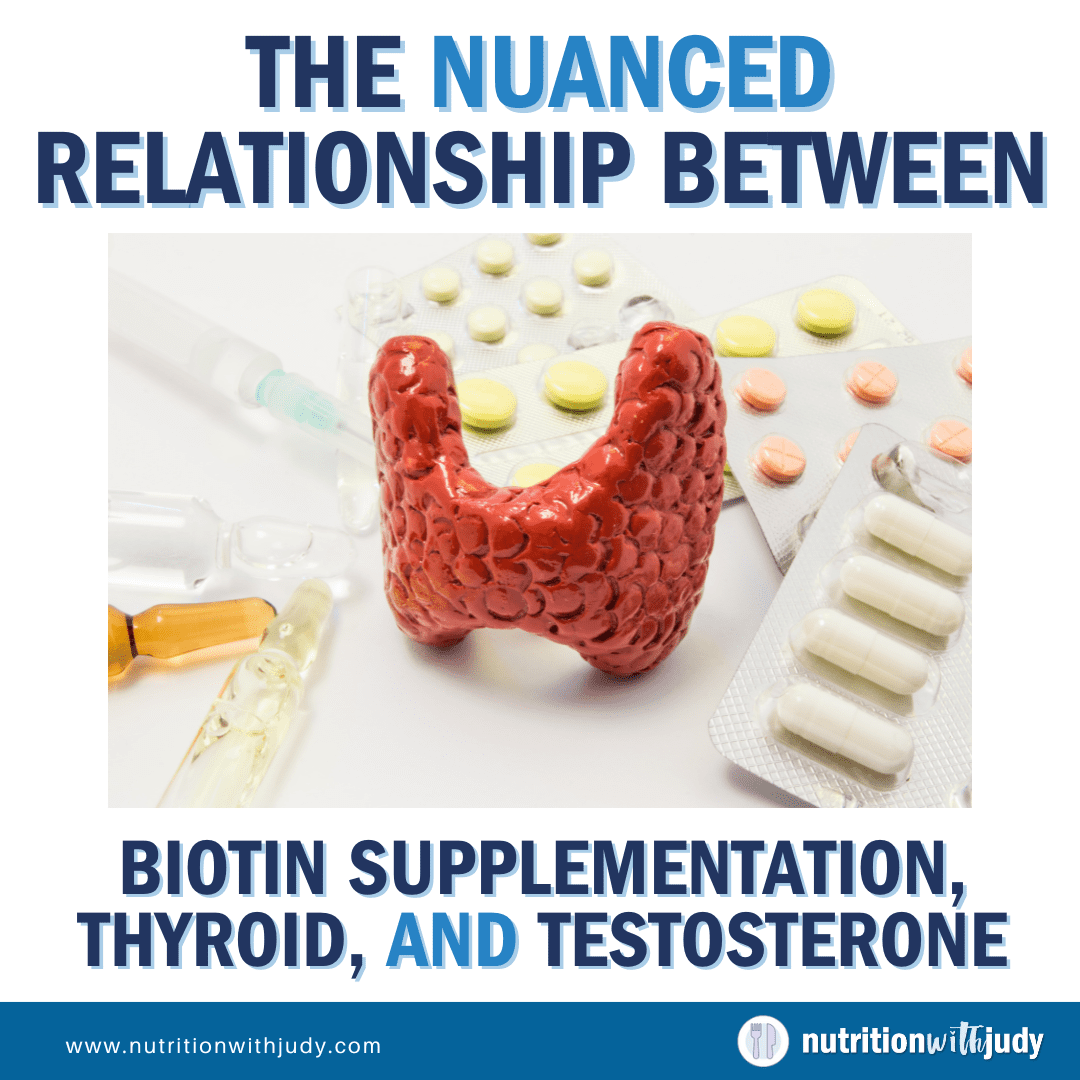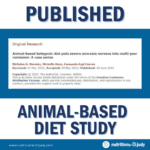

The Nuanced Relationship Between Biotin Supplementation, Thyroid, and Testosterone


Original Publish Date: 6/11/23
Biotin Supplementation
Biotin supplementation can falsely affect the results of thyroid and testosterone blood results. Biotin can interfere with T3 uptake levels, for example. T3 uptake is an indirect measurement of the amount of thyroid-related binding proteins in the blood.
Per the FDA, “As noted in the original safety communication, while biotin in patient samples can cause falsely high or falsely low results, depending on the type of test, the FDA is particularly concerned about biotin interference causing a falsely low result for troponin, a clinically important biomarker to aid in the diagnosis of heart attacks, which may lead to a missed diagnosis and potentially serious clinical implications. The FDA continues to receive adverse events reports indicating biotin interference caused falsely low troponin results.” (Source)
Per LabCorp, “This test may exhibit interference when the sample is collected from a person who is consuming a supplement with a high dose of biotin (also termed as vitamin B7 or B8, vitamin H, or coenzyme R). It is recommended to ask all patients who may be indicated for this test about biotin supplementation. Patients should be cautioned to stop biotin consumption at least 72 hours prior to the collection of a sample.” (Source)
Biotin supplementation is not the only factor that interferes with T3 uptake levels and thyroid labs. Salicylates and corticosteroids can also adversely impact thyroid levels. You can read more about the Physiologic and Pharmacologic Effects of Corticosteroids.
As I primarily work with LabCorp, here are other LabCorp tests that may be affected by biotin supplementation:
- 004051: Cortisol
- 004226: Testosterone, Total
- 004020: Dehydroepiandrosterone (DHEA) Sulfate
- 002014: Folate (Folic Acid)
- 004515: Estradiol
- 004309: Follicle-stimulating Hormone (FSH)
- 006684: Thyroid Antibodies
- 006676: Thyroid Peroxidase (TPO) Antibodies
- 015610: Parathyroid Hormone (PTH), Intact
- 140150: Troponin T (Highly Sensitive) (Cardiac Troponin T)
- 002295: Immunoglobulins, Quantitative, IgA, IgE, IgG, IgM
- 143000: NT-proBNP (Propeptide of Brain Natriuretic Peptide)
- 500089: C-Telopeptide (Endocrine Sciences)
- 006734: Hepatitis A Antibody, IgM
- 096339: Anti-dsDNA (Double-stranded) Antibodies
- 144000: Acute Viral Hepatitis (HAV, HBV, HCV)
- 143008: Glutamic Acid Decarboxylase (GAD) Autoantibody
There are additional tests that biotin, salicylates, and corticosteroids may impact.
The recommendation is to stop taking biotin 72 hours before testing. It’s tricky because I like to see my client’s baseline with supplementation, as that’s how their markers look with the supplements and medications.
Knowing this information, we should consider the weight we put on bloodwork: it does not tell the whole story. Little things can impact markers heavily. It’s also a snapshot in time and may not always represent what is happening daily.
Take Continuous Glucose Monitors (CGMs), for example. Our blood glucose changes greatly based on what we eat, even within one meal.
Biotin is also rich in egg yolks, liver, and avocados. One egg yolk has 33% of your daily value. If you eat more than five egg yolks a day, your lab results may be inaccurate.
The key is to stop most supplements and medications over time. We may need supplements and medications while we become fat-adapted and heal. But long-term, we want food to be nature’s vitamin.
Knowing this information, consider how some people blame a lack of carbs for so many thyroid and testosterone imbalances. It’s a grossly infantile view of the body and of blood work.
One example is how androgen hormones (testosterone) can be adversely impacted by chronic illness, such as chronic inflammatory response syndrome (CIRS).
Not everything is because of an imbalanced macronutrient. There is more to wellness than protein, fat, and carbohydrate ratios.
In health,
Judy



